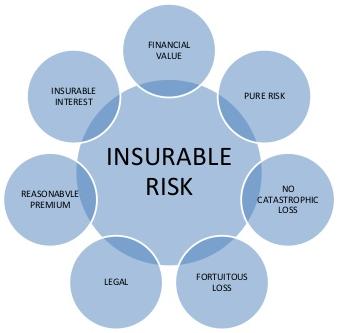Why You Should Care About Insurable Interest
First of all, what is insurable interest?
It’s simply the stake you have in something that is being insured – and that the amount of insurance coverage for whatever is being insured is not more than your potential loss.
To say things could become a bit awkward might be an understatement if your insurable interest isn’t considered before you’re deep into the planning phase of a project or before you’ve signed some papers, like a title or a loan.
It’s better for your sanity to understand insurable interest beforehand. Where the issue of insurable interest often arises is in auto insurance. Let’s look at an example.
Let’s say you have a car that’s worth $5,000. $5,000 is the maximum amount of money you would lose if the car is stolen or damaged – and $5,000 would be the most you could insure the car for. $5,000 is your insurable interest.
In the above example, you own the car, so you have an insurable interest in it. By the same token, you can’t insure your neighbor’s car. If your neighbor’s car was stolen or damaged, you wouldn’t suffer any financial loss because it wasn’t your car.
Here’s where it might get a little tricky and why it’s important to understand insurable interest. Let’s say you have a young driver in the house, a teenager, and it’s time for him to get mobile. He’s been saving up his lawn-mowing money for two years and finally bought the (used) car of his dreams.
You might have considered adding your son’s car to your auto policy to save money – you’ve heard how much it can cost for a teen driver to buy their own policy. Sounds like a good plan, right? However, the problem with this strategy is that you don’t have an insurable interest in your son’s car. He bought it, and it’s registered to him.
You might find an insurance sales rep who will write the policy. But there’s a risk the policy won’t make it through underwriting and – more importantly – if there’s a claim with that car, the claim might not be covered because you didn’t have an insurable interest in it. If you want to put that car on your auto insurance policy, the car needs to be registered to the named insured on the policy – you.
Insurable Interest And Lenders
If you have a mortgage or an auto loan, your lender is probably listed on your policy. Both you and the lender have an insurable interest in the house or the car. Over time, as the loan is paid down, you’ll have a greater insurable interest and the lender’s insurable interest will become smaller. (Hint: When your loan is paid off, ask your agent to remove the lender from the policy to avoid any confusion or delays if you have a claim someday.)
Does Ownership Create Insurable Interest?
Good question. It might seem like ownership and insurable interest are equivalent – they often occur simultaneously. But there are times when you can have an insurable interest in something without being an owner.
Life insurance is a great example of having an insurable interest without ownership. You can’t own a person – but if a person dies, you may experience a financial loss. However, just as you can’t insure your neighbor’s car, you can’t purchase a life insurance policy on your neighbor, either. You’d have to be able to demonstrate your potential loss if your neighbor passed away. And no it doesn’t count if they never returned those hedge clippers they borrowed from you last spring.
So now you know all about insurable interest. While insurable interest requirements may seem inconvenient at times, the rules are there to protect you and to help keep rates lower for everyone. Without insurable interest requirements, the door is open to fraud, speculation, or even malicious behavior. A little inconvenience seems like a much better option.
For further information, contact:
Phyllis Shallman, Financial Professional
M: 562.537.6365
phyllis.shallman@wealthwave.com






